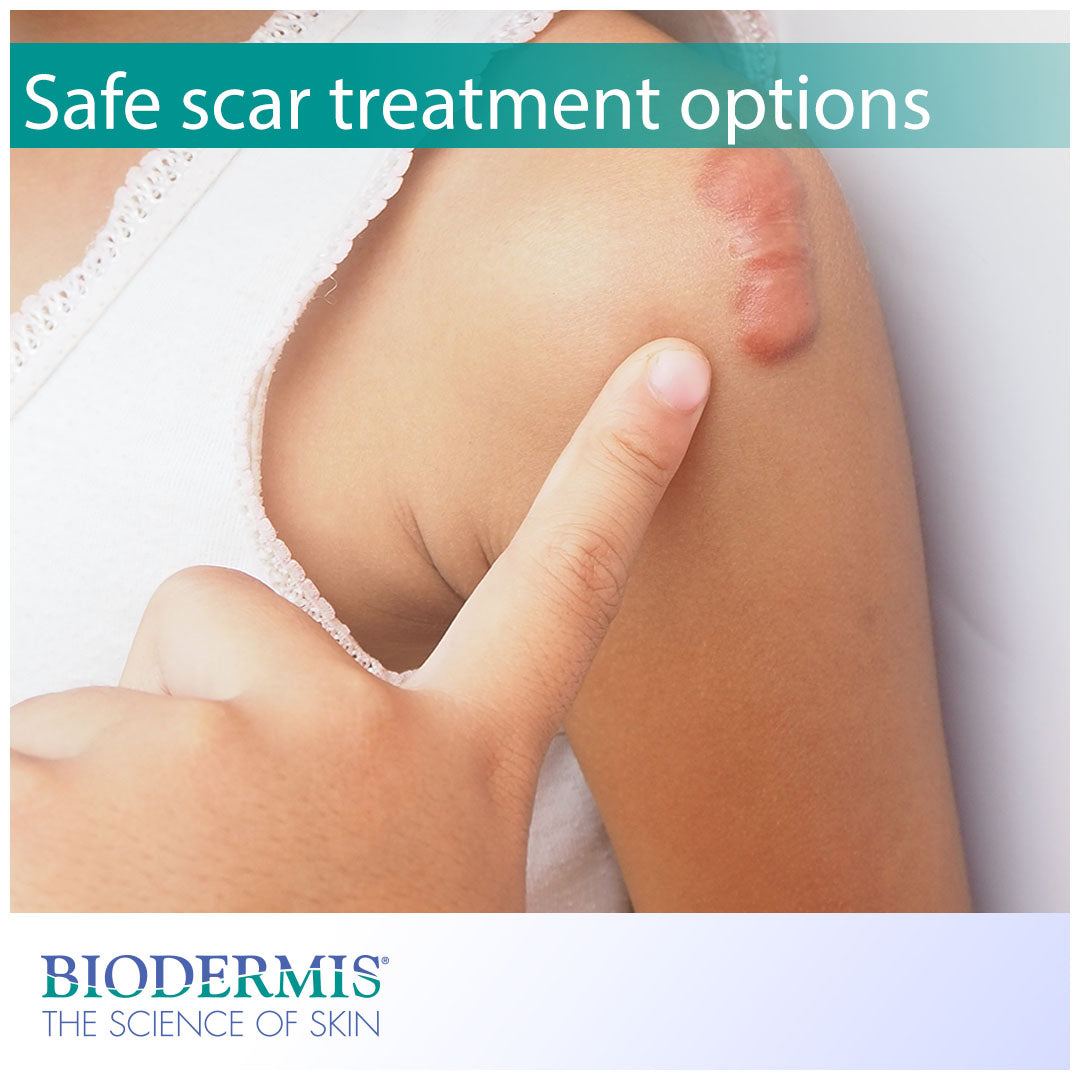The Safest Scar Treatment Options
Injuries happen when we least expect them, especially for children and the elderly. Depending on the severity of the injury, a person can be left with little to no scarring or develop excessive scarring, known as keloids and hypertrophic scars. Common injuries can lead to acne scarring, burn scars, keloids, and hypertrophic scars. These scar types are typical but they can be burdensome and difficult to manage if left untreated for long periods of time. Some people go to such lengths to treat their scars through the methods of steroid injections and surgical scar removal. However, these options may not be viable for some people, especially children. Therefore, patients want to know what natural and safe therapy options exist for effectively reducing the size and appearance of scars.
Massage and stretch your scar
Massaging and stretching techniques are commonly used in physical therapy to loosen up tight skin caused by scars. The reason some scars feel tight is because the collagen proteins organize themselves in a single direction during the wound healing process. With healthy skin, collagen is structured in a multidirectional pattern, which lends skin its elasticity and tensile strength. The aim of stretching and massaging scar tissue is to promote tissue remodeling. When done successfully, the collagen fibers will align in more of a multi-directional manner. This promotes tensile strength in the scar tissue and allows it to endure greater forces from bodily motion throughout the day.
Apart from massaging and stretching, physical therapists often use other techniques to promote scar tissue elasticity. These include kinesiology tape and the Graston technique. Kinesiology tape, also known as elastic therapeutic tape, is a cotton strip with an acrylic adhesive backing that sticks to the skin. This tape is often used to assist with recovery from injury or other physical disabilities. The tape can also be used in scar therapy to stretch and create space between the dermis, fascia, and muscle to facilitate blood flow and remodeling in the tissue. The Graston technique, another method for scar therapy, is the use of metal tools that are specially designed for soft tissue mobilization. A trained specialist, usually a physical therapist, will use the metal instruments to gently message and scrape areas of the skin that cause restriction. This has the benefit of reducing pain and increasing function and mobility in the fascia of the skin. Similar to kinesiology tape, the Graston technique stretches connective tissue to promote collagen remodeling.
Use silicone gel sheeting
Medical grade silicone has been the leading topical solution for scar management for the past 30 years and is trusted by surgeons and dermatologists around the world. Silicone gel helps scars by creating an ideal environment (homeostasis) of moisture and oxygen to flatten and reduce their appearance. Silicone sheeting works through the mechanisms of dermal hydration and collagen regulation and is backed by numerous clinical studies. Excessive scarring is the result of skin overcompensating during the wound healing process by creating too much collagen. When collagen builds up over time, we are left with raised and discolored scars, also known as keloids and hypertrophic scars. Silicone gel signals skin cells to scale back collagen production, thereby reducing and flattening scar tissue. Silicone gel is safe for all ages and can be purchased through your physician or online at biodermis.com.
Biodermis is an innovative market leader with 30 years of expertise in the medical silicone industry. Visit Biodermis.com today to explore a complete range of scar management and post-operative care solutions.
PHYSICIANS AND MEDICAL PROFESSIONALS: REFER OR RESELL?
Biodermis offers custom tailored referral programs designed to simplify and reduce the cost of your patients' post-op care. Additionally, we offer professional pricing if you opt to retail our products. Give us a call at 800.322.3729, and we will be happy to provide additional details on these programs.






